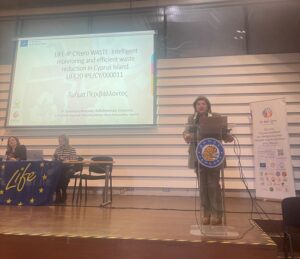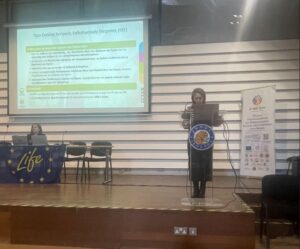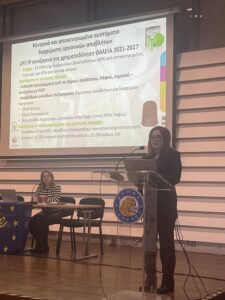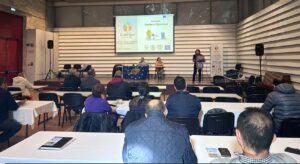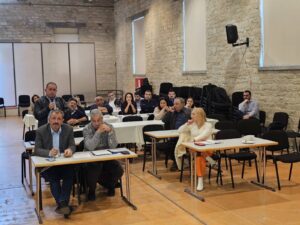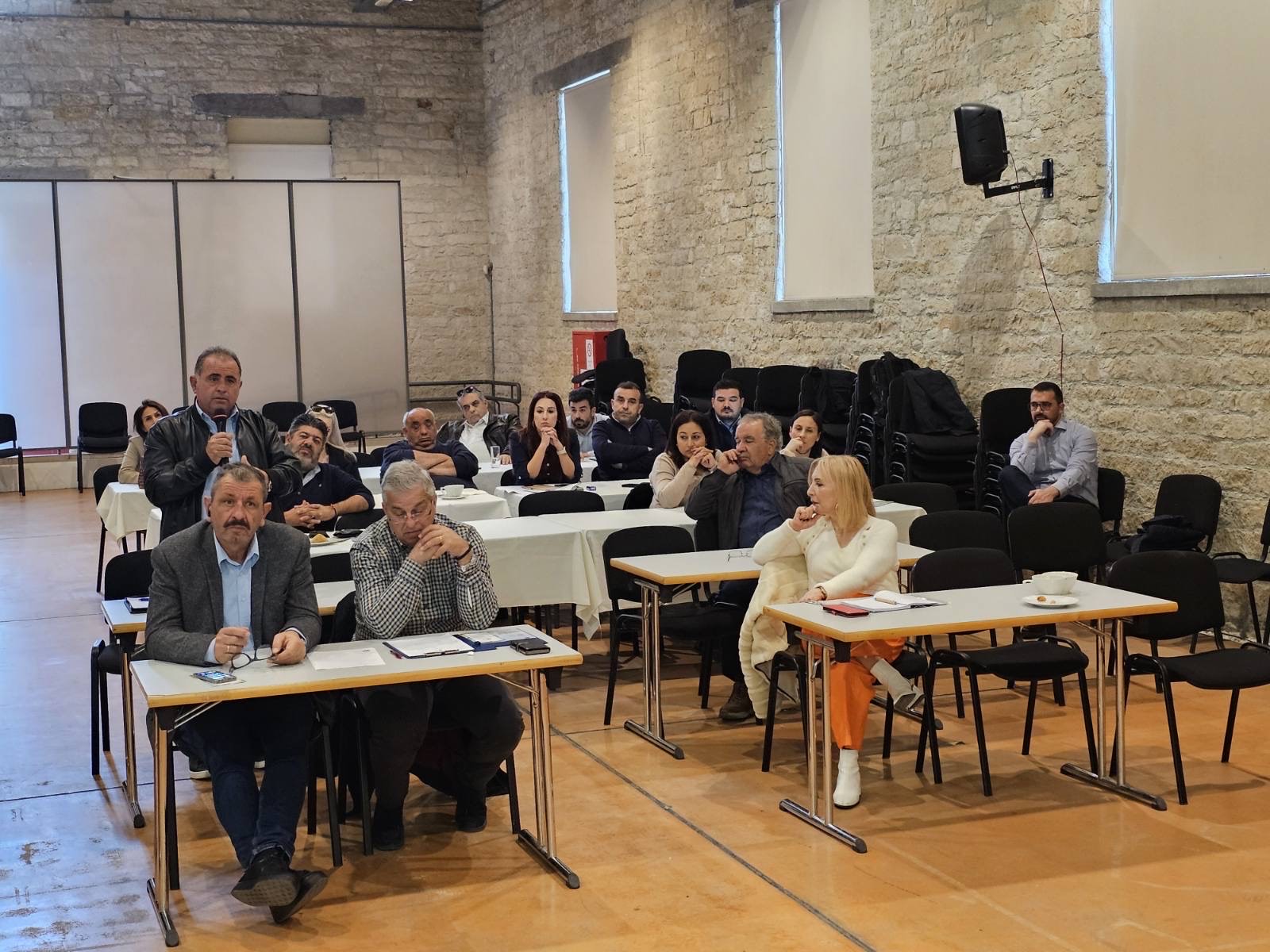On December 16, 2024, the 1st Capacity Building Workshop was held within the framework of the LIFE IP Zero Waste Cyprus project. The workshop focused on the operation of the Network of fifty (50) Green Kiosks (GKs) and the management of the collected recyclable materials.
The event attracted significant attention, with participation from representatives of the Department of Environment, the National Technical University of Athens, the District Local Government Organizations, Local Authorities, Development Agencies, and the Cyprus Chamber of Commerce and Industry.
Following the welcome speech by Dr. Efi Tritopoulou, Researcher A’ at the National Technical University of Athens, the workshop was structured in two main parts, under her coordination. In the first part, Ms. Ioanna Constantinidou, Head of the Waste and Circular Economy Project Implementation at the Department of Environment of the Ministry of Agriculture, Rural Development and Environment, presented the infrastructure of the GKs. The presentation focused on their locations, available equipment, operations, expected results, and their significant contribution to achieving both national and European recycling targets. Additionally, it highlighted awareness-raising and informational actions to ensure the active participation of citizens in the system, as well as the potential for creating synergies with other infrastructures aimed at optimizing material transportation and collection, reducing transport costs, and limiting CO2 emissions.
Also in the first part, Mr. Nikolaos Kondylis, Head of Budget, Expenditure Management and Procurement at the Municipality of Naxos, participated remotely and shared his experience with the operation of similar GKs installed in the local communities of the Municipality of Naxos and Small Cyclades. During his presentation, Mr. Kondylis addressed the challenges and management methods of these kiosks, while emphasizing the role of this infrastructure in ensuring high-purity material collection. Based on his experience, he underscored that the effective operation of GKs is achieved through targeted awareness campaigns, consistent communication between the operator and the responsible control and monitoring authority (e.g., the Community Leader), and the development of effective solutions for the temporary storage of materials during periods of high collection rates. In conclusion, he emphasized the importance of securing a final recipient for the processing of recyclable materials for the successful operation of the GKs.
The second part of the workshop featured a presentation by Ms. Ioanna Constantinidou, who initially outlined the key components of a proposed Memorandum of Understanding between the Ministry of Agriculture, Rural Development and Environment, the District Local Government Organizations and the Development Agencies. She then analyzed the two proposed plans developed as solutions for the management of recyclable materials, while highlighting the roles and responsibilities of the involved entities. The management framework for the GKs includes (a) operations, (b) collection and transportation of materials, and (c) revenues from the materials.
Regarding the operation of the GKs, this presentation served as a starting point for an extensive discussion on the formation of a tripartite cooperation between the Ministry of Agriculture, Rural Development and Environment (owner of the GKs), the Development Agencies (responsible for operating the GKs until 2029 according to the LIFE IP Zero Waste Cyprus project), and the District Local Government Organizations (responsible for the operation of the GKs as of July 2024, according to the applicable legislation). In this context, participants shared their views and suggestions on key issues related to the management of materials collected from the GKs.
On the subject of material collection and transportation, the issues discussed included identifying the responsible entity, the allocation of transport costs, and determining the final recipient for the management and processing of the materials.
Finally, regarding the revenue from the materials, the discussion focused on the organization responsible for managing the revenues and fees arising from the recycling process.
The next steps involve the preparation of a Standard Memorandum of Understanding by the Department of Environment, which will define the general framework for cooperation. This agreement will be flexible, allowing for adjustments to suit individual relationships between Development Agencies and District Local Government Organizations, based on the municipal waste management practices followed in each District. Additionally, further examination of the legislative framework governing the obligations of the collective packaging recycling system concerning the management of materials collected from the GKs is considered crucial for the sustainable operation of the system and for effective cooperation between Local Authorities, District Local Government Organizations, and Development Agencies.
In conclusion, the workshop highlighted the importance of cooperation and the exchange of experiences as fundamental for the sustainability of the Green Kiosk operations. The active involvement of stakeholders and targeted actions will be the key to their successful operation.
Ενδεικτικό πλάνο Διαχείρισης συλλεχθέντων υλικών και Μνημόνιο Συναντίληψης
